第143章 62(2)
It is quite true that Athens or Florence, during the hey-day of their glory, had only one tenth of the population of Kansas City. But our present civilisation would be very different had neither of these two little cities of the Mediterranean basin existed. And the same (with due apologies to the good people of Wyandotte County) can hardly be said of this busy metropolis on the Missouri River.
And since I am being very personal, allow me to state one other fact.
When we visit a doctor, we find out before hand whether he is a surgeon or a diagnostician or a homeopath or a faith healer, for we want to know from what angle he will look at our complaint. We ought to be as careful in the choice of our historians as we are in the selection of our physicians. We think, "Oh well, history is history," and let it go at that. But the writer who was educated in a strictly Presbyterian household somewhere in the backwoods of Scotland will look differ- ently upon every question of human relationships from his neighbour who as a child, was dragged to listen to the brilliant exhortations of Robert Ingersoll, the enemy of all revealed Devils. In due course of time, both men may forget their early training and never again visit either church or lecture hall. But the influence of these impressionable years stays with them and they cannot escape showing it in whatever they write or say or do.
In the preface to this book, I told you that I should not be an infallible guide and now that we have almost reached the end, I repeat the warning. I was born and educated in an atmosphere of the old-fashioned liberalism which had followed the discoveries of Darwin and the other pioneers of the nineteenth century. As a child, I happened to spend most of my waking hours with an uncle who was a great collector of the books written by Montaigne, the great French essayist of the sixteenth century. Because I was born in Rotterdam and educated in the city of Gouda, I ran continually across Erasmus and for some unknown reason this great exponent of tolerance took hold of my intolerant self. Later I discovered Anatole France and my first experience with the English language came about through an accidental encounter with Thackeray's "Henry Esmond," a story which made more impression upon me than any other book in the English language.
If I had been born in a pleasant middle western city I probably should have a certain affection for the hymns which I had heard in my childhood. But my earliest recollection of music goes back to the afternoon when my Mother took me to hear nothing less than a Bach fugue. And the mathematical perfection of the great Protestant master influenced me to such an extent that I cannot hear the usual hymns of our prayer- meetings without a feeling of intense agony and direct pain.
Again, if I had been born in Italy and had been warmed by the sunshine of the happy valley of the Arno, I might love many colourful and sunny pictures which now leave me indifferent because I got my first artistic impressions in a country where the rare sun beats down upon the rain-soaked land with almost cruel brutality and throws everything into violent contrasts of dark and light.
I state these few facts deliberately that you may know the personal bias of the man who wrote this history and may understand his point-of-view. The bibliography at the end of this book, which represents all sorts of opinions and views, will allow you to compare my ideas with those of other people.
And in this way, you will be able to reach your own final conclusions with a greater degree of fairness than would otherwise be possible.
After this short but necessary excursion, we return to the history of the last fifty years. Many things happened during this period but very little occurred which at the time seemed to be of paramount importance. The majority of the greater powers ceased to be mere political agencies and became large business enterprises. They built railroads. They founded and subsidized steam-ship lines to all parts of the world. They connected their different possessions with telegraph wires.
And they steadily increased their holdings in other continents.